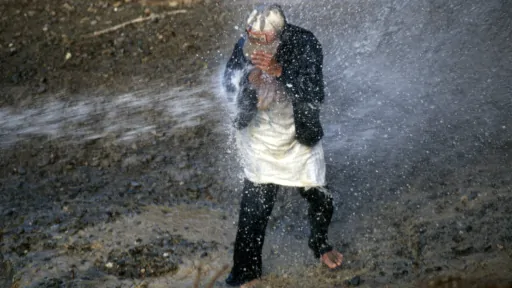Opinion Editorial Archive May, 2021: Mining Your Vote

Less than two weeks ago, around a hundred indigenous Brazilians gathered in the capital, Brasilia, to protest Bill 191. Already defeated once in the Brazilian Congress, the resurrected bill, if passed, would effectively legalize activities like mining on protected indigenous land.
The timing was not a coincidence. April 19 was Day of the Indigenous in Brazil. That same day, Brazil's National Committee in Defense of Territories against Mining reported that illegal gold mining on indigenous Brazilian land was on the rise. Endorsed by President Bolsonaro, Bill 191, he claims, would benefit Brazil's indigenous people. He has also been trying to strike a deal with the United States under which Amazonian deforestation would decrease in return for foreign aid. Then, a week ago, he slashed Brazil's 2021 environment budget by a third. The previous day he had indicated, publically before a world audience, that he was committed to tackling global climate change. (This is the same man who continues to tell his citizens that the coronavirus is only a minor inconvenience, while grave digging continues to be a round-the-clock enterprise in his country.)
But, last month, hundreds of activists, advocates, and celebrities openly urged President Biden not to enter into any environmental deal with Bolsonaro. So, why all the protesting?
The answer could lie in Greenland. There, last month, a general election was won by the Inuit Ataqatigiit party. Now part of a coalition government, the party insists that Greenland will be open only to sustainable mining practices.
Their insistence should not surprise anyone. Campaigning in the election focused heavily on the future of domestic mining. Greenland is long known to have significant deposits of rare earth minerals. As its ice sheet continues to retreat due to global climate change, those minerals become easier to extract. This makes mining them even more lucrative.
Although Inuit Ataqatigiit ran an anti-mining election campaign, it was still expected that the electorate would embrace the interests of foreign mining companies (while improving their own chance of gaining full political independence from Denmark). That did not happen.
Greenland has a population of only 56,000 people. The majority of them are indigenous Inuit people. They elected to reiterate their stance from 2019 when then-US President Donald Trump proposed buying their country: Greenland is not for sale. In so doing, they achieved what most other countries are struggling to do: They put their long-term environmental protection concerns ahead of their short-term capital gain.
It may seem entirely unrelated, but a similar event happened in Europe last month. The European Super League was supposed to be a breakaway football (soccer) tournament for a select few elite teams. Like rare earth mineral mining in Greenland, it would have served the capital gain of a few. But, just like in Greenland, those few forgot that many have a stake. They are football fans. In some European countries, they actually have the power of the vote (let's call it democracy for want of a better word) when it comes to what their teams do. That was conveniently forgotten in this case, and the fans rebelled en masse. The net result was that the whole European Super League idea was abandoned within 48 hours of its kick off.
The mine in this month's photo was in Pailin, western Cambodia. I say 'was' because the photo was taken many years ago and the mine is now closed. All the gemstones were taken out of the ground long ago. It's easy — even tempting — to believe that events on another part of the planet do not concern us because they have no connection to us. That was once true, but those days are over. The profits from this mine supported the last Khmer Rouge stronghold for years. That, in turn, threatened the stability of the country and the region. Western media barely reported this at the time.
If you don't live in Brazil or the Amazon, you may have no opinion about Jair Bolsonaro or his policies. Yet you should still follow the congressional inquiry into his handling of the Covid-19 pandemic (including how that has impacted Brazil's indigenous population) that was launched there a few days ago. The outcome could impact your future travel plans and even your future health if Brazilians vote him back into office next year.
If you don't live in the US, you may think it's not a big deal that a public figure for whom many once voted should attempt to cancel thousands of years of indigenous culture there in one statement. Yet you should still be concerned because his statement is factually incorrect.
If you don't live in Alaska, you may believe that federal aviation law should apply there only to those who are aware of the science behind that law. Yet if you do live there and you think that way, you should consider voting to send Molly of Denali to the US Senate. Even though she is a fictitious, cartoon child, she is an indigenous Alaskan. That means she has more knowledge of science than one of your current senators does.
If you truly have no opinion about these events, all of which happened last month, there are thousands of indigenous people in Greenland who can teach you an important lesson that your politicians, your mainstream media, and your social media feeds will not.
If you enjoyed reading this month's opinion editorial, please consider supporting independent, advertising-free journalism by buying us a coffee to help us cover the cost of hosting our web site. Please click on the link or scan the QR code. Thanks!

